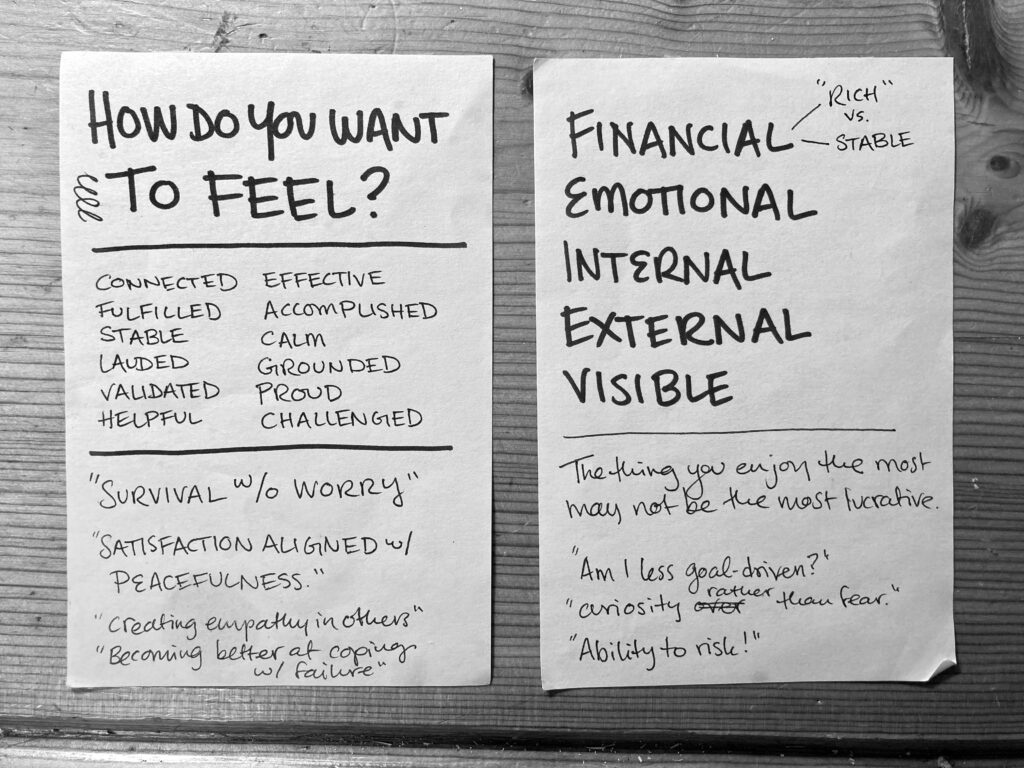An added benefit of Brendan’s Christmas thread of appreciation: an enormous slew of new blogs to follow! Honestly too many. I get overwhelmed easily these days. But I lingered over his tweet about Nadia, because it mentioned experimentations with microgrants (HELLO), which then led me to her very clean and pleasing site.
I bopped around for a while, delighting in the short-form Notes and reading a few blog entries before adding the feed to my RSS reader. The joy in doing this (depending on how often someone updates their blog) is getting to jump back a few months or years in the timeline to see what they were up to before. That’s how I landed on this post about The Creator Economy from 2021. There are so many gems in here; things I think about all the time, but also things I don’t! She probes further beyond where this conversation usually ends, asking the kinds of questions the post suggests we should all be asking.
When I imagine a cultural renaissance that inspires me, I think about working together to address unsolved questions, tugging on threads in conversations that need unraveling, creating enduring artifacts for generations to pore over and iterate upon. The “publish or perish” model that nudges people to rack up more followers is not the pinnacle of creative freedom; it’s indentured spiritual servitude.
Indentured spiritual servitude! Hot damn!! This is precisely the situation so many of us cartoonists find ourselves in. Precisely the reason I feel so much resistance to the simple act of sharing a photograph or a passing thought on social media. However trivial, it still feels like something I have to do. It’s a matter of survival.
Towards the very end of Tomorrow, and Tomorrow, and Tomorrow (which I finished in a glut yesterday morning), one of the protagonists gives a little speech about luck, and the circumstances of birth that led to their company being able to succeed at making video games where and when they did.
“[…] I think, because of the internet, we would have been overwhelmed by how many people were trying to do the exact same things we were. We had so much freedom—creatively, technically. No one was watching us, and we weren’t even watching ourselves.”
And just before that:
“It’s so easy to make a hit when you’re young and you don’t know anything.” “I think that, too,” Sadie said. “The knowledge and experience we have—it isn’t necessarily that helpful, in a way.” “So depressing,” Sam said, laughing. “What’s all of this struggle been for?”
They almost felt like too much, these tidy conversations at the end of the novel, because they’re exactly the conversations I have with my peers about “making it” in comics. But they were also so accurate I found myself nodding along.
I don’t have a tidy wrap-up for this. I just want to be watching myself less. I want to go unsurveilled.
